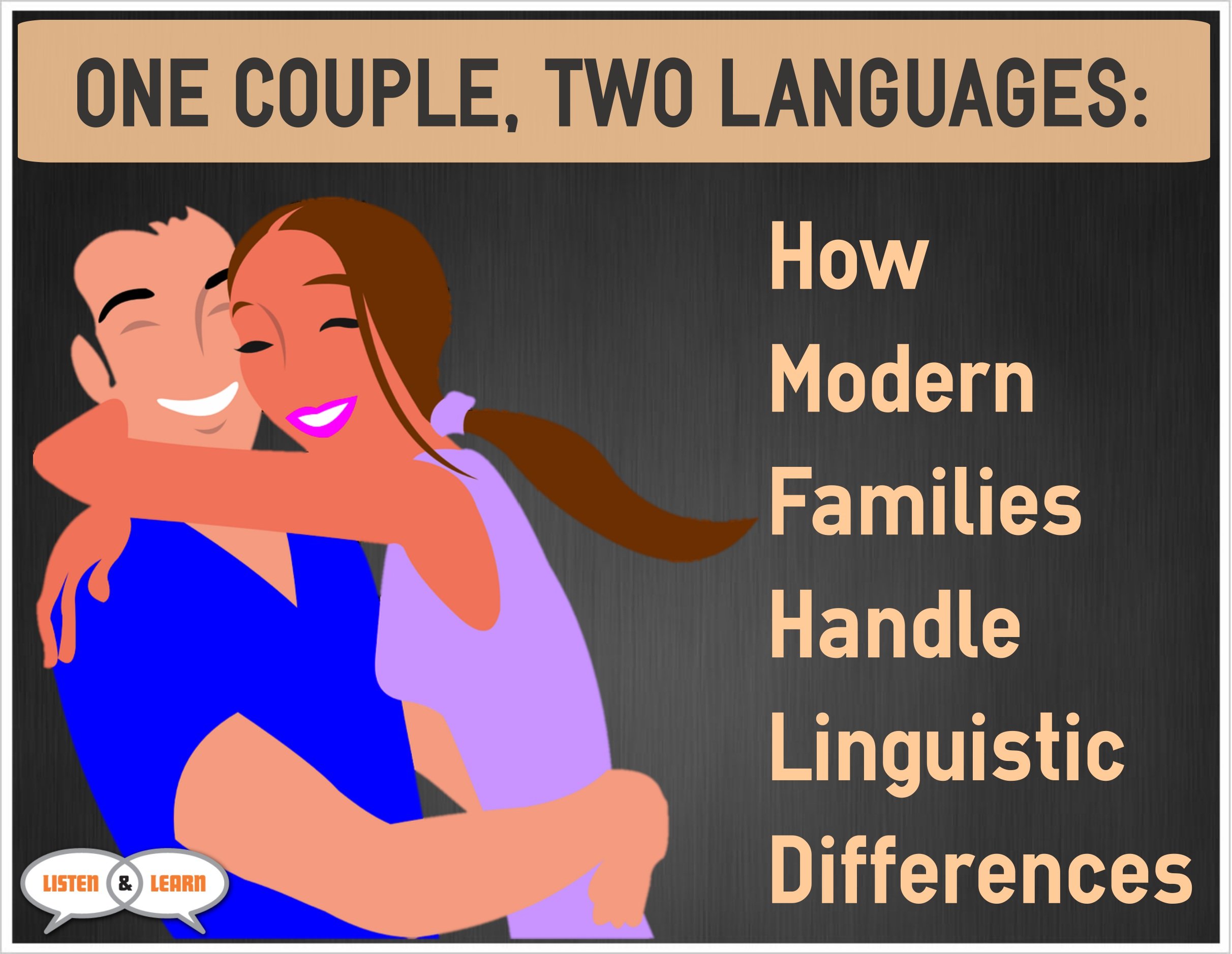One Couple, Two Languages: How Modern Families Handle Linguistic Differences
Table of Contents
They say relationships are hard, and those of us with partners who speak another language may be in some of the most difficult relationships of all. While love is universal, so are other fundamental human emotions. And when it becomes difficult to express those emotions in words that both parties can equally understand and appreciate, things can get tricky.
Now before you write off mixed language coupling as a viable option for a fulfilling and happy life, it’s important to remember the many positives associated with this type of relationship. Learning about and feeling part of another culture is an enriching experience that will greatly enhance your quality of life. Being able to speak a second language and communicate with a whole new group of people is both rewarding and challenging at the same time. And that’s not to mention the fact that you’ll probably get to eat some awesome food that you never even knew existed before meeting your partner.
As with every other factor that comes into play with a serious relationship, there’s both good and bad that comes with having two different native languages. These are some of the top issues every mixed language couple is sure to encounter:
Bonding with a New Family
Marriage brings more than two people together; it merges two families. When your spouse’s family speaks a whole other language, finding your place in that relationship can be more difficult than usual. You may be used to having lots of privacy and keeping personal issues or thoughts to yourself, while your Argentinean in laws may interpret your quiet behavior as standoffish or anti-social. Speaking with your own parents may be a casual affair in an American household, but if you fail to greet Vietnamese in laws with a formal greeting and appropriate body language you will make a very questionable first impression.
Teaching Language to Children
Research indicates that kids are like sponges when it comes to absorbing information. Bilingual households create a fantastic atmosphere for children to learn in, though it’s important for parents to lay groundwork that they can stick with. Many experts agree the best approach is for each parent to always speak in their native language. Any mixed language family knows that this is easier said than done though. It can be very difficult to maintain a routine in which you speak German while your spouse speaks Italian. And imagine you’re living in Mexico and your child hears Spanish outside the home! It’s important to find a rhythm that works for you and encourages positive exposure to these different languages and cultures so that your child will be enthusiastic about learning each of them. Speaking multiple languages by the time they reach high school gives kids an incredible advantage in not only their academic endeavors, but in the workplace and in the college application process as well.
Learning How to Argue Productively
Every couple argues, whether it’s once a month or once a day. Language can add heat to the fire, especially when one party doesn’t understand what the other is saying. Waving your arms, spitting out words, or raising your voice all display anger, but it’s impossible to find common ground–and resolution–when language becomes a barrier in an argument.
There are a lots of ways couples can overcome linguistic obstacles. Here are a few tips:
Share cultural knowledge with your partner.
Spend time teaching them about any specific greetings, cultural no-no’s, and key phrases that they should be aware of. Set them up to make a good impression on your family from day one to lay the groundwork for a mutually respectful relationship throughout the years.
Think about your language teaching approach before you have children.
You’ll be able to eliminate extra stress and feel more comfortable as a multi-lingual household if you come up with a plan before the arrival of children. Think about how your children will communicate with members of you and your partner’s extended family as well. By learning both of your native languages they’ll be able to talk to and bond with grandparents, aunts and uncles, and other faraway family members.
Agree to step away from unresolved arguments.
When an argument escalates to a certain level your best bet may be to walk away until you can cool down and refocus. You’ll be able to better control what you say and use your full mental capacity to understand what your partner is saying, versus arguing in two different languages with neither party truly hearing what the other is trying to communicate. Resume the conversation later when you can talk and think clearly.
Sharing your life with someone who has a different native language can add complexity to your life in so many good ways. Embrace this key difference between you and your partner by making an effort to learn their language. They will surely appreciate your enthusiasm over their culture and heritage. Speaking their language will make future communication easier here and abroad, in your own home and when visiting in laws. At Listen & Learn we offer lessons for dozens of languages that are spoken around the world. If you’re interested in learning more, we invite you to contact us today.



